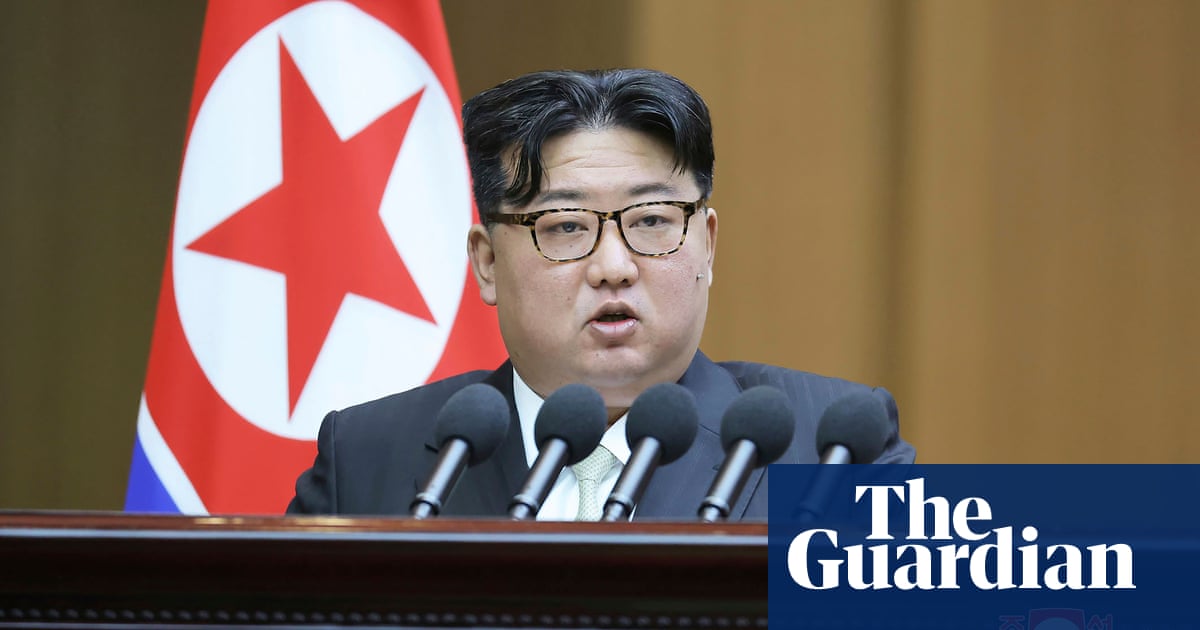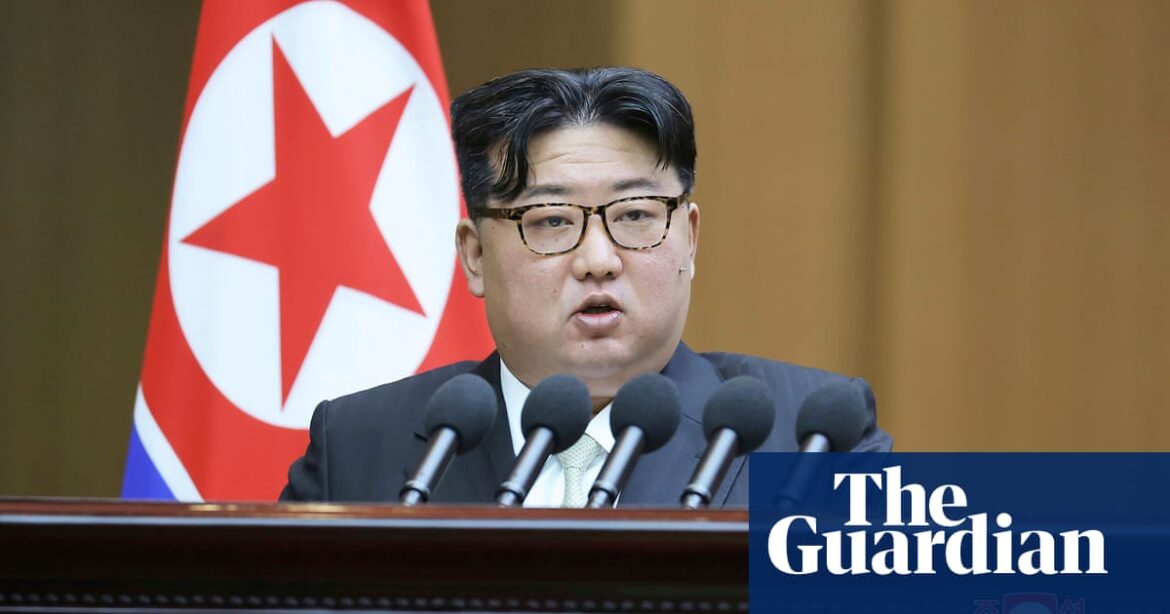
Kim Jong-un, leader of North Korea, has proposed a modification to the constitution that would designate South Korea as the top enemy state, effectively renouncing the regime’s goal of reunifying the Korean peninsula.
During a public address to the supreme people’s assembly, North Korea’s parliament, Kim declared that he no longer had faith in the possibility of unification. He also accused the South of trying to instigate regime change and secretly push for unification.
Amidst worsening relations between North and South Korea, which have remained at a state of truce since the end of their 1950-53 war without a formal peace agreement, Kim stated, “We are not seeking war, but we will not shy away from it.”
On Tuesday, the official KCNA news agency announced that North Korea plans to shut down three agencies responsible for unification and inter-Korean tourism. These agencies include the Committee for the Peaceful Reunification, the National Economic Cooperation Bureau, and the Mount Kumgang International Tourism Administration.
According to KCNA, a recent decision by the assembly stated that the two most antagonistic countries currently engaged in conflict are engaged in intense confrontation on the Korean peninsula. The assembly also declared that with South Korea, officially known as the Republic of Korea, unification of Korea is not feasible.
Kim’s remarks received swift criticism from South Korean President Yoon Suk Yeol, who accused Pyongyang of being “unpatriotic” for labeling the South as an enemy nation.
Yoon expressed disapproval of North Korea’s recent missile launch and live-fire drills near the contentious maritime border between the two countries. He cautioned that these actions could lead to increased retaliation.
Kim’s address signals a shift away from the long-standing government stance of prioritizing reconciliation and reunification, despite the frequent tensions on the Korean peninsula.
Certain experts suggest that the North may be labeling the South as its primary enemy in order to rationalize the potential deployment of nuclear weapons in a future conflict.
According to KCNA, Kim stated that a conflict would cause severe damage to South Korea and bring about an unimaginable loss to their top supporter, the US, who currently has around 30,000 military personnel stationed in the region.
Kim stated that in the case of a war in Korea, it is imperative to consider the concept of overtaking, suppressing, and taking back [South Korea] and integrating it into our country.
The recent decline in relations between countries has caused concern among those observing Korea.
Last week, a report was released by the US-based 38 North project. It stated that according to former state department official Robert Carlin and nuclear scientist Siegfried Hecker, the current state of affairs on the Korean peninsula is more perilous than it has been since early June 1950, just before the beginning of the Korean War.
While it may seem exaggerated, we are of the belief that Kim Jong-un has made a deliberate choice to engage in warfare, similar to his grandfather’s decision in 1950.
It is uncertain when or how Kim will initiate action, but the threat has surpassed the typical cautions from Washington, Seoul, and Tokyo regarding Pyongyang’s actions.
During a recent gathering of the dominant Workers’ Party, Kim Jong-un referred to North and South Korea as “two opposing states,” according to reports from Yonhap news agency.
Source: theguardian.com



